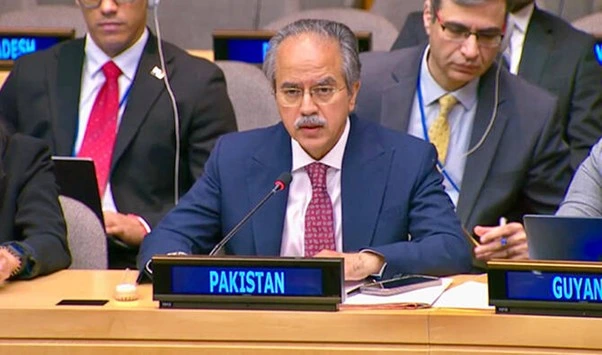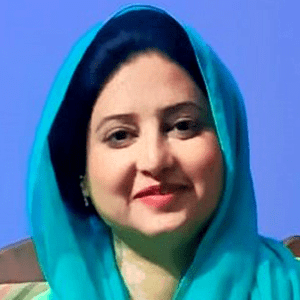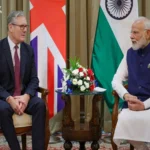The diplomatic situation in the South Asia region is distressed by the shocking chain of events of recent weeks that indicate the increased disturbing tendency of the allegedly targeted and harassed Pakistani diplomats in India. Such co-ordinated moves which are, it is said, sponsored by the Indian authorities are dangerous aberrations of diplomatic protocol and are a cynical way of deflecting national domestic criticisms of Indian internal and external failures in security. What transpires in New Delhi is not mere bi-lateral squabble but timely degradation of the holiness of diplomatic ties based on the false excuses of national interests and political expediency.
On May 24, 2025, an employee of the Pakistani Ministry of Foreign Affairs (MoFA) was violently accosted and recorded by Indian media staff persons during a noxious delivery to him of a harmless cake. Soon this video, riddled with allegations of undercover operations was broadcasted by Indian TV channels. Two days later, an incidence occurred where another Pakistani official was harassed on the occasion of picking up official mail sent by the Ministry of External Affairs (MEA) office in India and this time too efforts were made to make the matter viral. This is not a mere coincidence, but systematic and consistent actions of intimidation, media lynching, and mental bullying of Pakistani diplomatic personnel.
Mainstream Indian media in collusion with the social media influencers with their nationalist biases has created a false and poisonous propaganda drive. There are no solid substantiations or due analytical process showing the Pakistani diplomats are spies and acts of disruption. Eminent Indian journalists and political commentators have committed provocation beyond control on television, and this only encouraged hate speeches among the citizens. Such staged efforts with governmental silence, at the least, deliberate closeness is not accidental, but part of an overall game plan: the establishment of an external threat that will divert attention to the home weaknesses of the Modi government, especially in the wake of the recent tendering of hostilities with Pakistan, in early 2025.
Surveillance of the Pakistani diplomats and their families is one of the main characteristics of this campaign as it is visible and invasive. The Indian intelligence agencies, coupled with Delhi Police and Central Reserve Police Force (CRPF), have stepped up to act around the Pakistani High Commission as well as the residence of Pakistani High Commissioners and other staff members. Security installations that are employed to provide protection have turned into instruments of intimidation. Surveillance cameras, pursuit cars, and impromptu visits are in breach not only of the privacy but also of the overall principle of diplomacy interaction.
Such calculation in hostility is a clear violation of the Vienna Convention on Diplomatic Relations (1961), which is one of the most essential premises of international diplomatic affairs. In Article 22(1), it is clearly stated that the premises of the mission is inviolable and agents of the receiving state are not allowed to enter them without the consent of the head of the mission in question. Moreover, Article 22(3) makes it clear that the premises, the property and transportation of the mission would be beyond accessibility to search, requisition, or any seizure. The present situation in India shows a very bitter disdain towards these international accepted norms, which is a bad precedent to be followed and stretches the envelope of acceptable diplomatic norms.
The larger setting indicates that such provocations are not accidental, but, on the contrary, a well-placed strategy of replacing a domestic storyline that had moved ahead in terms of time. The Modi government is under the scanner, following the India-Pakistan standoff of 2025, in which the Indian government lost not only in the military realm but also in the intelligence department as well as even losing fighter jets and strategic credibility. Instead of being transparently accountable, or involve strategic introspection, the government has opted to turn the national apprehension to an artificial outside danger.
Offending the Pakistani nation by demonizing it and releasing a frenzy of attacks against the country and its diplomats as being involved in subversive activity, the Indian government tries to redefine the national discourse turning it to the one of aggressive and victimized nation. The concept is very much basic but very efficient: instead of the embarrassing headlines of the failures of the military, change it to some flashy assertions of foreign meddling. In such a way, the administration of Modi tries to unite the community of thoughts, concentrate the nationalistic appeal, suppress the awkward questions concerning its leadership, security failures, and its policy mistakes.
Nevertheless, this strategy is not novel although in India under Modi it has taken a stronger manifestation in the nation-s political agenda. When issues get tough at home, whether it is about stagnation, social conflict, or inter-border tensions, the ruling establishment tends to swing to the hard line towards India. Such an approach to scapegoating has two consequences, as it not only helps to unite the domestic audience with a seen foreign threat but also shifts the focus away; to misrule. The recent targeting of Pakistani diplomats is therefore not the first in a series of shifting policies that create a distraction by use of a crisis.
Nonetheless, this is a very risky practice which is very expensive. In addition to the short-term diplomatic consequences, it destroys trust, enhances animosity and dissolves any chances of real dialogue between the two nuclear armed neighbours. It threatens mirror-effect interventions, further increases, and permanent harm to regional stability. Additionally, it gives a dangerous signal to the global community that India is ready to forego the international standards and conventions as long as there are political dividends to be harvested.
The constant harassment of Pakistani diplomats in India is a political move of desperation and not of any real security consideration. Labelling Pakistani authorities as villains and causing unfavourable conditions to diplomacy, the Indian government aims to distract it amid all the failures that Modi government has managed to perform during the current military conflict.
Such diversion tactic, convenient as it is politically in the short run, presents serious challenges to peace in the region, diplomatic integrity, and reputation to India itself on the international scene. Simply preserving the diplomatic norms is no kindness extended to the opponent, it is the dedication to stability and lawfulness in the world. India should be answerable to its faults and the international community cannot afford to say nothing when faced with such provocations.








